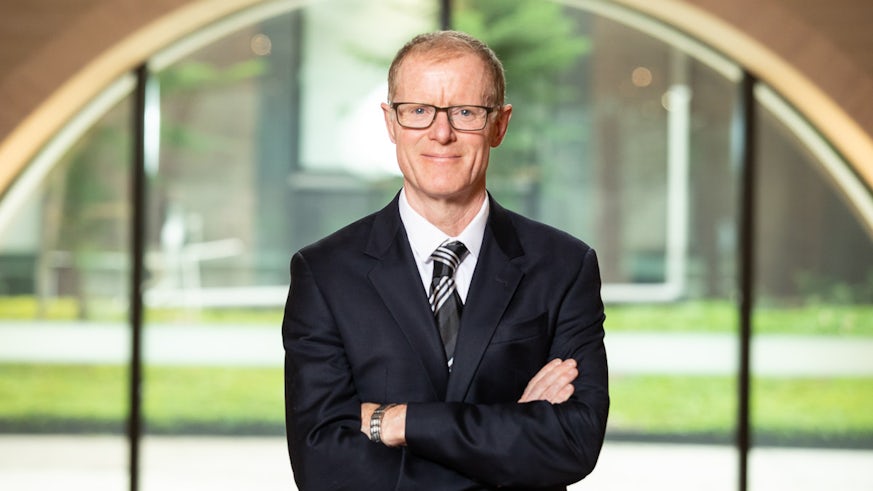Cardiff University scientist elected to The Royal Society
12 May 2022

Professor Jamie Rossjohn, from the School of Medicine, has been elected as a Fellow of the Royal Society (FRS) - one of the world’s most prestigious scientific bodies – in recognition of his transformative contributions to science.
The Royal Society, established in the 1660s, is the oldest scientific academy in continuous existence in the world. Head of the Infection and Immunity Program of the Biomedicine Discovery Institute at Monash University and Professor in Structural Immunology at Cardiff University, Professor Rossjohn FRS is among 62 exceptional scientists honoured with Fellowships in 2022, joining the ranks of the world’s most eminent scientists. Previous Royal Society Fellows include Charles Darwin, Peter Doherty, Dorothy Hodgkin and over 280 Nobel Laureates.
A greater understanding of immunity has led to rapid advances in the development of vaccines and new cancer immunotherapies. Developing ground-breaking and sustained discoveries that advance our molecular understanding of the immune system, Professor Rossjohn has made a pioneering contribution to natural knowledge and greatly enhanced Australia and Wales’s international reputation and capability for scientific discovery.
Professor Rossjohn FRS is known for his contributions to the understanding the molecular basis underpinning immunity; using structural biology to explain pre-T-cell receptor (TCR) self-association in T-cell development, and how the TCR specifically recognises polymorphic Human Leukocyte Antigen (HLA) molecules in the context of viral immunity and aberrant T-cell reactivity. He has unearthed structural mechanisms of HLA polymorphism impacting on drug and food hypersensitivities, as well as Natural Killer cell receptor recognition. He has pioneered our molecular understanding of lipid-based immunity by T cells, revealing that it can differ fundamentally from peptide-mediated adaptive immunity. Recently, his team has provided a structural basis of how vitamin B metabolites can be presented and recognised by the immune system, revealing a new class of antigen.
“Ultimately these basic discoveries may lay the foundation for future innovative immunotherapies to treat disease,” Professor Rossjohn said.
Sir Adrian Smith, President of the Royal Society, said: “It is an honour to welcome so many outstanding researchers from around the world into the Fellowship of the Royal Society. Through their careers so far, these researchers have helped further our understanding of human disease, biodiversity loss and the origins of the universe. I am also pleased to see so many new Fellows working in areas likely to have a transformative impact on our society over this century, from new materials and energy technologies to synthetic biology and artificial intelligence. I look forward to seeing what great things they will achieve in the years ahead.”
Professor Rossjohn will attend a ceremony in London in July where he will give a presentation of his work, sign the Charter book and be formally admitted as a Fellow.